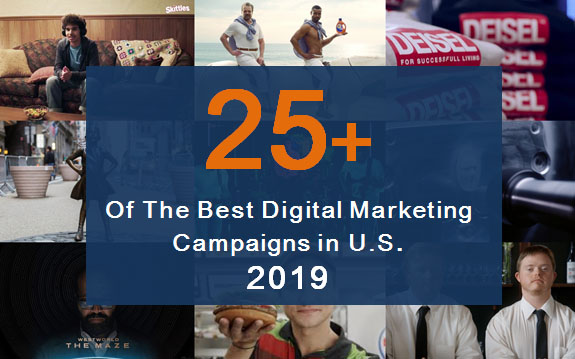Digital Marketing Consultants Vs. In-House Teams: Pros And Cons
Digital Marketing | Mar 02, 2024
There is no denying that your online presence can make or break your business. Figuring out the best way to execute a digital marketing campaign can be overwhelming. Should you hand over your website and social platforms to an agency or try rallying your troops internally? The good and bad of both paths could leave anyone scratching their heads.
The truth is every company’s needs and capacities are a little different. So choosing what’s best for you is subjective. Fret not, as this article will provide a balanced breakdown of each option to help you think through what might suit your situation best. So read on.
Key benefits of digital marketing consultants
Offer a wealth of knowledge
It’s no secret that agencies employ incredibly smart people who eat, sleep, and breathe the latest algorithms, platform updates, and data tricks. Using a digital marketing consultant means you are tapping into those ever-evolving skill sets, which can be a quick way to level up your digital marketing minus the headaches of building that expertise from scratch in-house.
With an experienced consultant guiding the ship, you can be sure you’re keeping up with all the shifts in SEO, social media, and email while executing sharp strategies.

Provide an outside eye to pinpoint growth opportunities
Consultants also provide an objective sounding board to evaluate what’s currently working and what’s not. Having them benchmark your metrics against the top industry standards can illuminate where the biggest wins and gaps exist.
With a 360-degree view across countless companies, they know what optimal digital success looks like and can guide you there backed by hard data. Implementing evidence-based recommendations can instill the confidence that you’re making the right moves.
Ensure cost savings and scalability
Unlike hiring expensive full-time strategists, consultants offer flexibility to scale up campaigns during busy periods and pull back during slower times. You avoid carrying excess internal capacity and only pay for the specific skills needed as growth demands them.
With consultants motivated to drive tangible results that boost their client roster, they have plenty of skin in the game. The burden remains on them to deliver an ROI.
Grant early access to emerging tech
Lastly, top-tier consultants actively test cutting-edge tools and tactics out of necessity—it’s how they stay ahead. Forming a partnership grants you exposure to those innovations before they hit the mainstream. That first-mover advantage can sometimes offer a competitive edge in reaching customers.
Of course, the tradeoffs warrant consideration too. Consultants will never know the essence of a business like an internal advocate would. That outside perspective could lead to digital initiatives that feel out of sync with your brand voice and vision. But by clearly communicating priorities early on, many find the rewards outweigh the risks.
Potential drawbacks of digital marketing consultants
Lack of deep customer and industry insights
The main drawback of using digital marketing consultants is that, as external partners, they will never have the deep institutional knowledge or intrinsic passion that an internal team has after being immersed in a company’s culture and strategic vision over time.
While great consultants make every effort to quickly understand the essence of an organization, that lack of historical context can result in well-intended yet tone-deaf initiatives that feel out of sync with the brand identity or miss the mark on resonating with core customer segments. Conveying priorities upfront and maintaining an open dialogue can help mitigate this gap.
Present control and oversight challenges
Delegating significant marketing activities to outside parties inherently involves yielding some control, which can be uncomfortable for some company leaders. You will not be involved in the day-to-day tactics or able to directly oversee the work beyond analyzing reports and results.
There is an element of trust placed in the competency and responsibility of your consultants. Lacking command of consulting resources and projects demands trusting that the outside team executes faithfully on your behalf.
Pose potential confidentiality issues
With consultants, proprietary company information flows outside your walls, magnifying the vulnerability of sensitive marketing data and insights getting leaked either intentionally or inadvertently. Employees sign non-disclosure contracts and actively work to protect competitive details.
Despite stringent rules, the hazard inherently increases using external resources. While rare, compromising situations can occur, such as consultants reusing customer research, lead lists, or creative campaigns without proper consent. Legal contracts help, although not foolproof.
Pros of having an in-house digital marketing team
Fosters deeper customer and brand affinity
Compared to external teams, dedicated in-house digital marketers integrate better into internal teams and structures, absorbing cross-functional knowledge that informs online strategies. Immersive brand exposure stimulates ideas firmly rooted in customer needs, company vision, and product roadmaps.
Firsthand meetings with different divisions breed better ideas rather than having fragmented relationships managed separately. Being onsite daily also builds tighter relationships between digital marketers and groups like sales, customer support, and R&D. The collective insights manifest in having your finger on the pulse of customer pain points.

Centralizes strategy and tightens execution
Concentrating digital marketing in-house centralizes control under unified leadership that aligns closely with executives to ensure consistency of messaging and strategic priorities across all online initiatives. This prevents disjointed efforts from diluting impact or sending confusing signals to the market.
Tighter oversight also lessens the chances of low-quality execution, delays, or budget overruns. In-house marketers have some skin in the game, being directly accountable for driving measurable ROI. Creating the right internal structure and processes maintains accountability.
Ensures confidentiality and information security
When leveraging consultants, proprietary company information inevitably gets shared externally, increasing vulnerabilities from a security standpoint. Beyond exposing competitive details, customer data and lead information can be mishandled or misused intentionally or accidentally when relying substantially on outside vendors.
Having digital marketing staff operate as direct employees subject them fully to company security and confidentiality protocols, preserving the integrity of all brand assets and databases internally. Keeping control inside the walls provides comfort regarding the protection of critical information.
Promotes cultural cohesion and consistency
An in-house digital marketing team lives and breathes the company identity daily, absorbing cultural elements through habits, rituals, and informal exchanges that occur while working closely alongside internal teammates. This cultural immersion harmonizes branding initiatives to resonate authentically. Customers perceive when marketing messages and touchpoints ring true to a company’s ethos.
Furthermore, regular coordinated interactions between related groups like branding, communications, and customer service reduce misalignments across functions that undermine the consistency of image and experience.
Risks of developing in-house digital marketing
Incur high costs and inflexibility of adding headcount
Hiring in-house staff creates a relatively fixed cost structure and longer-term commitments that limit financial flexibility. Carrying underutilized staff during slower periods creates excess capacity costs. Scaling down is also difficult without painful layoffs damaging morale.
The constraints of set team size can delay adapting to fluctuating marketing needs. Be conservative, forecasting an adequate budget to carry the department.
Face potential skillset limitations
Realistically, even talented in-house teams struggle to match the expertise breadth and specialization level of dedicated consultants concentrating on single disciplines. Unless companies commit to substantial training programs, skill gaps will surface, necessitating outside help.
Be careful about overestimating capabilities to take the right initial steps, and then fill specialty niches with contract consultants.
Encounter technology and innovation limitations
Few in-house departments marshal adequate time and resources to deeply research and experiment with new digital technologies the way specialist consultants subordinate everything to sourcing cutting-edge advantages.
The breakneck pace of change across digital channels like AI, automation, and predictive analytics means most companies perpetually lag behind the innovations consultants test and integrate. Frequent tech upgrades also carry costs that impact budgets.
In closing
Given the subjectivity of choosing between an external or internal digital marketing team, the focus must be set on a thorough internal assessment. Look into your human capital and make an accurate diagnosis of your workforce’s skill set.
Once you’ve done that, you can then objectively identify gaps that cannot be filled internally despite best efforts. This will determine the prime areas for external assistance. By following this principle, you can seamlessly carry out a digital marketing plan that will skyrocket your business.





